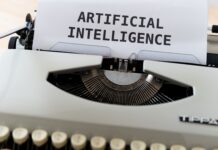In today’s rapidly evolving workplace, AI in employee performance management is revolutionizing how organizations evaluate, develop, and retain their workforce. From real-time feedback systems to predictive analytics, AI in employee performance management enhances efficiency, reduces bias, and transforms traditional evaluation frameworks into data-driven, continuous improvement models. Whether you’re an HR leader, a team manager, or an employee looking to understand workplace trends, knowing how AI in employee performance management is reshaping business operations is essential for staying competitive, future-ready, and workforce-centric.
Let’s explore ten critical areas where artificial intelligence is driving transformative change in the way organizations approach employee performance.
1. AI Enables Real-Time Performance Monitoring
Gone are the days when employee evaluations happened once a year. AI makes it possible to monitor performance on an ongoing basis by analyzing data from communication tools, project management platforms, emails, and collaboration software. This real-time performance tracking allows for immediate feedback, coaching opportunities, and course correction.
With this approach, managers and HR teams can observe trends in productivity, communication quality, and deliverables with minimal delay. Employees also benefit by understanding expectations clearly and improving incrementally instead of being judged at arbitrary intervals.
2. Data-Driven Goal Setting and OKR Alignment
AI-powered systems help organizations create more data-backed and relevant goals, often using the Objectives and Key Results (OKRs) framework. Instead of generic targets, AI tailors performance metrics based on role, historical data, and broader business outcomes.
It ensures that employee goals are not only specific and measurable but also strategically aligned with company-wide objectives. This increases engagement and helps employees understand how their work contributes to the success of the organization.
3. Bias Reduction in Performance Evaluation
Unconscious biases can significantly distort performance reviews. AI minimizes human subjectivity by using objective data points and standardized metrics to assess performance. When implemented ethically, AI systems focus on factual indicators like project delivery times, customer feedback scores, or task completion consistency—independent of personal traits such as gender, race, or demeanor.
This creates a fairer evaluation landscape, promotes diversity and inclusion, and builds employee trust in the review process.
4. Intelligent Feedback Loops
AI can automate feedback cycles using behavior-tracking tools and collaboration data. For example, if an employee consistently misses deadlines or receives customer complaints, the system can trigger alerts or learning modules.
Conversely, AI can reward positive behaviors by highlighting achievements in dashboards or suggesting recognition emails to managers. These intelligent feedback loops make learning continuous and reinforce both accountability and motivation.
5. Personalized Learning and Development Recommendations
AI systems can identify knowledge gaps by analyzing performance data and then recommending individualized training content. These platforms assess skill proficiency, task history, and learning styles to suggest microlearning courses, peer mentoring, or video content tailored to the employee’s needs.
This not only boosts engagement but accelerates growth and performance—especially valuable in fast-paced industries or roles that demand rapid upskilling.
6. AI-Powered Sentiment Analysis and Engagement Monitoring
A happy, motivated employee performs better. AI tools now include sentiment analysis features that scan internal communication channels, surveys, and support requests to gauge emotional states and engagement levels.
By identifying patterns such as increased negativity or disengagement, HR teams can proactively intervene. This creates a healthier, more responsive work environment and reduces burnout or unexpected resignations.
7. Predictive Analytics for Employee Success and Churn
AI excels at predictive modeling. When applied to performance management, AI can forecast potential high-performers as well as individuals at risk of underperformance or leaving the company. It evaluates a combination of data such as attendance, collaboration frequency, productivity, and survey responses.
This empowers HR to plan succession pipelines, provide targeted coaching, and implement preemptive retention strategies, thereby strengthening organizational resilience.
8. Seamless Integration with Workflow Tools
Modern AI-based performance management systems integrate with daily tools like Slack, Microsoft Teams, Asana, Trello, and CRM software. These integrations allow AI to passively collect relevant performance data, reducing the burden on employees to manually input information.
For example, if an employee consistently completes tasks on time in a project management tool, this can be automatically reflected in their performance dashboard. This seamless tracking enhances accuracy, saves time, and supports automation.
9. Visual Dashboards for Real-Time Visibility
AI platforms provide customizable dashboards that track KPIs, behavioral metrics, and personal progress. Managers can visualize how their teams are doing in real-time and get early warnings on performance dips or process inefficiencies.
These dashboards also allow employees to monitor their own growth, promoting self-accountability and autonomy. Leaders gain insights for coaching, promotions, and workforce planning—all from one intelligent interface.
10. Scalability Across Global Workforces
AI-based performance management tools scale effortlessly across departments, regions, and time zones. Whether you’re managing 50 employees or 50,000, AI ensures consistency in how performance is measured, feedback is delivered, and development is tracked.
It also supports multilingual capabilities and cultural adaptability, making it ideal for multinational corporations or remote-first teams. This scalability ensures that even rapidly growing companies can maintain high performance standards without overloading their HR departments.
Conclusion: AI Makes Performance Management Smarter, Faster, and Fairer
The use of AI in employee performance management offers a powerful combination of real-time data, personalized learning, and unbiased evaluation. As the future of work continues to evolve, organizations must adopt systems that reflect modern demands—flexibility, accuracy, transparency, and engagement.
With AI in employee performance management, companies move beyond outdated processes and empower employees to thrive in environments built on trust, clarity, and continuous growth. The businesses that embrace this technology will be better equipped to attract, develop, and retain top talent in the years ahead.
Now more than ever, being aware of the capabilities of AI in employee performance management is not optional—it’s essential for forward-thinking leaders and agile enterprises.

















